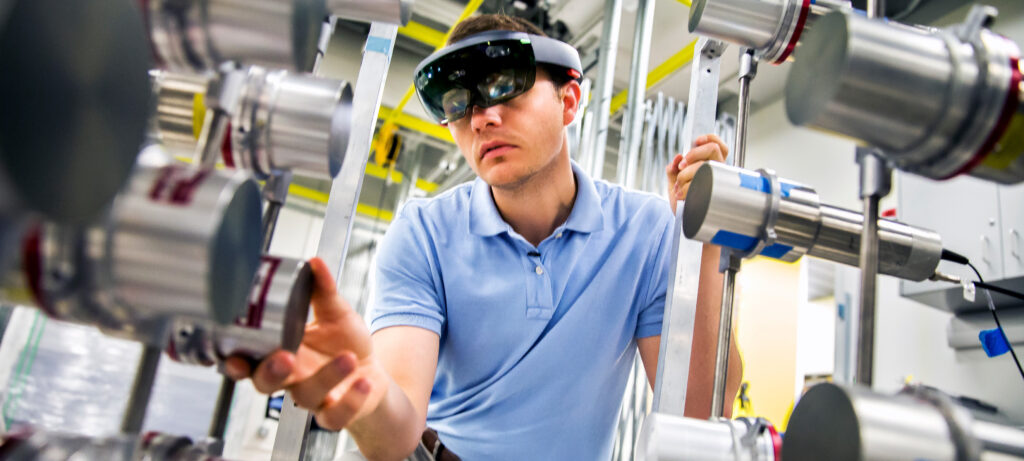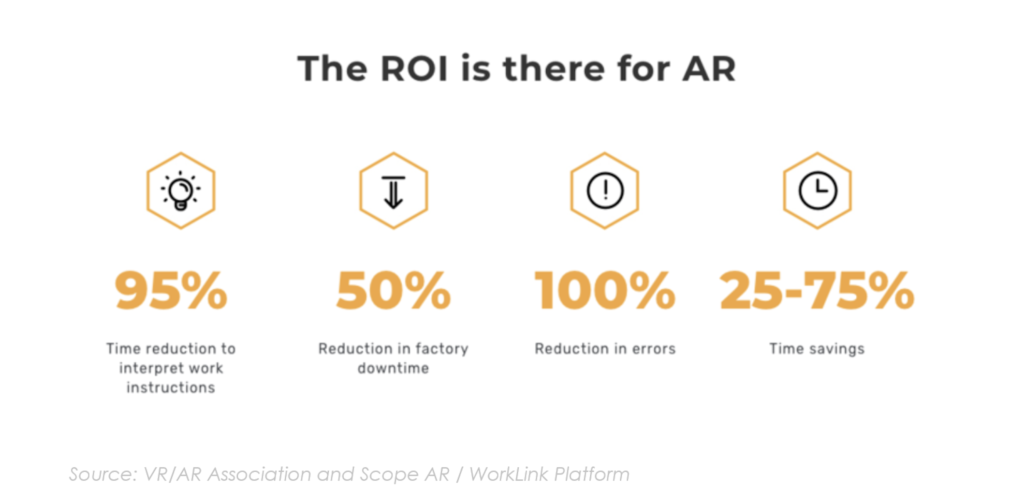How to lose 330 years of company experience in 5 years?

The skills gap affects most industries and markets, hindering companies’ operations. An acute shortage of workers is a struggle for 94 percent of large companies in France and 87 percent of family businesses in Germany. Deloitte predicts that the problem will worsen, with nearly half of the jobs created in the coming years going unfilled.
The Occupational Barometer 2023, developed for Poland by the Central Statistical Office, includes as many as 27 professions with more job offers than candidates. The main reason for the lack of professionals is mainly demographic changes – a shrinking group of people of working age and aging of the population. Professionals retire and long years of their expertise in the company drift away. At the same time, the complexity of production machinery and equipment requires ever more efficient, agile operation and maintenance. To cope with the growing crisis, companies are focusing on innovative strategies to build a knowledge base and improve the skills of employees.
“Manufacturing, like many other market segments, has to face changes in the work model and the needs of employees whom today expect various forms, locations, and times in which they perform their business duties, as well as modern work tools. Increasing labor costs due to staff shortages and inflation is also a challenge,” says Przemysław Maliszewski, CEO and co-founder of Aidar, specializing in AR and VR solutions for knowledge and competence management in the industry. Maliszewski notes the growing awareness of companies about their vulnerability to disruptions in the economic environment and the severe effects of the general shortage of workers, both skilled and unskilled. “All of these factors are in favor of increasing the level of automation, as it can mitigate many of the effects of disruption to labor and the supply chain while increasing productivity. The trend is moving towards augmentation not only to increase the operational efficiency of enterprises but also to surge the capabilities of employees and provide them with unobjectionable conditions – transfer new competencies, update knowledge, or make the latest technologies available.”
Manufacturers are aware of the paradox of automation: as new technologies are implemented, the demand for workers increases. People are needed to lead companies through digital transformation, and then develop them using modern tools and digital competencies. For one-third of manufacturing companies, retaining highly qualified employees is a strategic business priority for 2023, where retaining existing employees and attracting new ones is just as important.

Replacing experts costs 400 percent of their annual earnings
In the area of human resources, employers currently face two key challenges. The first is training to ensure employees have access to critical knowledge that can be easily found and used in real time. The second, retaining the employees they have already invested in. They are their most valuable resource, and literally – it is estimated that replacing a highly skilled employee can cost up to four times their annual salary.
The loss of a highly skilled subject-matter expert (SME) also comes with critical costs and disruption. Unilever has estimated that it will lose 330 years of experience over the next five years just from the retirement of employees at one of its plants. All it takes is doing nothing to provide a new way of gathering and transferring knowledge. The older generation is representatives of the baby boomers, many of whom have spent up to 35 years at the company, using the machines, but also maintaining and repairing them. For the company, his departure is walking valuable knowledge out the door.
The British-Dutch manufacturer and distributor of products that have found their way into kitchens and bathrooms around the world for years estimated that the drain on expertise would have an increasing impact on business operations. Costly production downtime was growing in parallel in the company’s twenty different service areas. Unilever, looking for a way to transfer knowledge within the company, focused on the expectations of new employees, examining what they needed to succeed and stay connected to the company for the long term, building the next generation of skilled workers. He found the solution in augmented reality and remote support services. AR technology enabled inexperienced employees to communicate via video on demand with experts located outside the company. Unilever measured the effectiveness of this method, showing that remote support raised the level of knowledge and facilitated its transfer, reducing production downtime by half. The return on investment exceeded the expected results – as much as 1,717 percent of the cost of the AR solution alone. The main benefit that employees notice daily is that machines are repaired much faster when they don’t have to wait for an expert to arrive on site.
Unilever is an example of how organizations can address the negative effects of losing employees on a macro level. Different forms of assignment and flexible working hours are effective ways to retain knowledge in the company. When people with the most experience are given expert and mentor roles, they share their knowledge before leaving the company. If they perform these roles remotely and part-time, such as using augmented reality technology, they are more likely to stay with the company for longer. At the same time, the pool of people with access to their knowledge increases, which can be used by additional production facilities located in different regions. In this way, the company’s most valuable resource – that is, the knowledge of its long-time employees – is perpetuated.
Knowledge on demand
In Poland, the largest number of vacancies in 2022 was in manufacturing, trade, and repair of motor vehicles, as well as in the group of industrial workers and craftsmen. This list largely coincides with sectors where immersive learning and knowledge transfer work well, yielding a rapid return on investment, at a level similar to that estimated by Unilever.

Optimism is where the bonds are
AR works well wherever employees prefer to learn directly from others rather than from books and courses, which is in most companies. It turns out that the experience of contact with an employee during a personal meeting or conversation does not lose its importance. An indicator that shows the level of optimism of employees and the factors that build it – the Career Optimism Index – shows that in 2022, for most of us, in order to derive satisfaction and motivation at work, it is important to know people experienced in the field in which we want to develop and connect with them.
Immersive experiences open the door to this type of contact, meeting the needs and expectations of employees, and thus anticipating the moment when they decide to look for it elsewhere. The physical presence and virtual space in which we see and hear the other person personally cooperating with us are valued more than referring to sources and training; they give employees a sense of security that the employer has not left them alone with the problem. Immersion support is also effectively complemented by other tools, such as chat or videoconferencing, supporting synchronous teamwork and peer mentoring.


